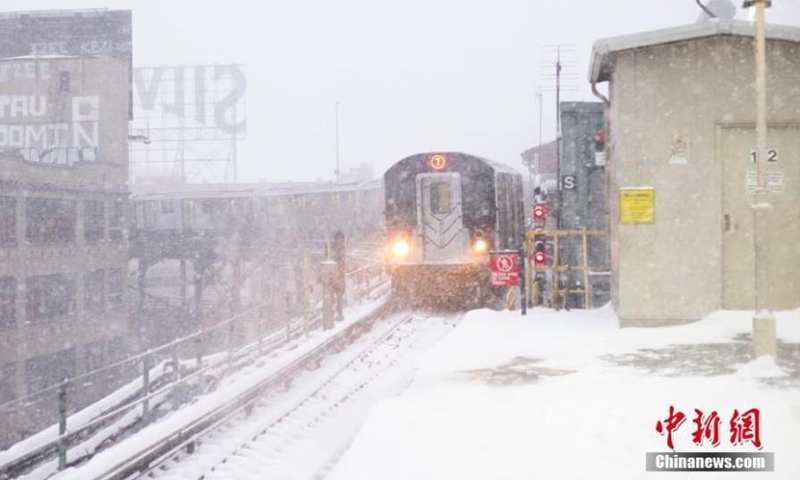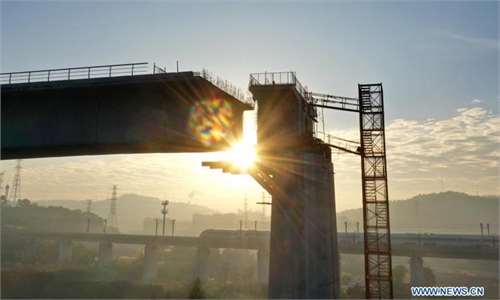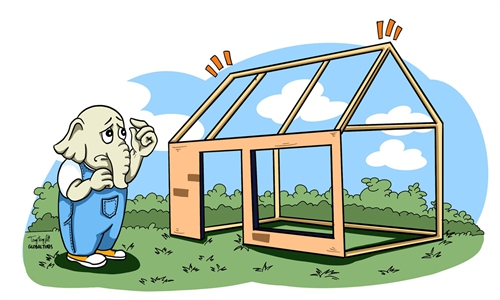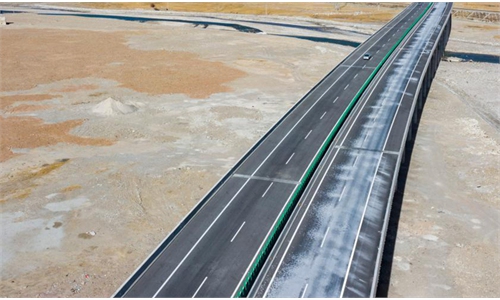
A Metro train approaches a station as a nor'easter blanketed much of New York State with snow on Feb. 1, 2021. New York State declared a state of emergency in New York City, Long Island and seven counties in Hudson Valley on Monday as a heavy snowstorm has been hitting the areas hard from Sunday night. (Photo/China News Service)
The US faces a $2.59 trillion shortfall in infrastructure needs that requires a massive jump in government spending to address crumbling roads, bridges and other programs, according to an assessment by an engineers' group issued on Wednesday.The 170-page report by the American Society of Civil Engineers (ASCE) comes as President Joe Biden plans to seek a dramatic jump on infrastructure spending in the coming weeks - after his predecessors Donald Trump and Barack Obama failed to win approval for a major funding effort.
The report, published once every four years, gave the US a "C-" overall - up from a D+ in 2017 - and marked the first time in two decades the country received a "C" range grade - but found the country is spending just over half of what is required, labeling overall US infrastructure in "mediocre condition."
The report urges the US to increase investment from all levels of government and the private sector to 3.5 from 2.5 percent of US gross domestic product by 2025.
The study graded 17 categories of infrastructure, ranging from a "B" for rail to a "D-" for transit.
The biggest projected gap is in surface transportation, which faces $1.2 trillion in projected unmet needs over 10 years, while water systems face $434 billion and schools $380 billion in funding gaps.
In total, 11 of 17 categories reviewed merited "D" range grades - "aviation, dams, hazardous waste, inland waterways, levees, public parks, roads, schools, stormwater, transit, and wastewater."
The report cited incremental gains in aviation, drinking water, energy, inland waterways and ports.
The infrastructure gap rose by $359 billion over 2017.
Biden was set to meet with lawmakers Thursday to discuss infrastructure along with Transportation Secretary Pete Buttigieg, who said the report card documents "what Americans already know: failure to fully invest in our infrastructure over the years is now catching up to us. Consequences are appearing nationwide, in the form of dangerously degraded roads, bridges, and other assets."
Reuters



